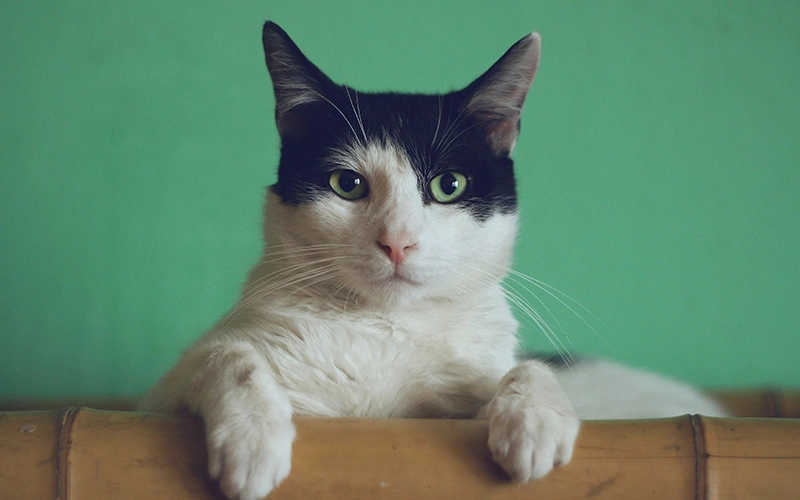In our previous articles, we explored the usage of diagnostic test kits utilizing secretions and fecal samples. In this article, we will focus on a different type of sample: Whole Blood, Serum, and Plasma, specifically through the lens of testing for Feline Coronavirus (FCoV) antibodies. This approach is crucial for diagnosing conditions affecting our feline friends and is an integral part of effective pet healthcare.

1. About Blood-Based rapid tests
Diagnostic test kits that use Whole Blood, Serum, or Plasma samples are vital tools in veterinary medicine. They allow for the rapid detection of various diseases in pets, contributing significantly to timely diagnosis and treatment. These kits are specifically designed to identify antibodies or antigens related to specific diseases, providing a clear picture of an animal's health status.
2. Diseases Detectable with Blood-Based Diagnostic rapid tests
Among the diseases that can be detected using these samples are:
Feline Coronavirus (FCoV)
Canine Parvovirus (CPV)
Feline Leukemia Virus (FeLV)
Canine Distemper Virus (CDV)
Heartworm disease
Each of these diseases poses significant health risks to pets, making early detection essential.
3. Feline Coronavirus (FCoV): Causes and Symptoms
Feline Coronavirus causes:
Feline Coronavirus (FCoV) is a viral infection commonly found in cats. It is important to note that while FCoV in cats is often benign, it can lead to a more severe form known as Feline Infectious Peritonitis (FIP). FCoV transmission is typically spread through fecal-oral transmission, meaning that cats can become infected by coming into contact with the feces of an infected cat.
FCoV Symptoms infection may include:
Feline coronavirus diarrhea
Anorexia (loss of appetite)
Lethargy
Weight loss
Fever
In more severe cases that develop into FIP, symptoms may progress to include fluid accumulation in the abdomen or chest, neurological signs, and more severe gastrointestinal issues. Given the potential for serious health complications, timely FCoV antibody test is crucial for effective management and treatment.
4. FCoV Ab rapid test instructions
The FCoV Ab rapid test is a simple, yet powerful tool for feline coronavirus diagnosis in cats using blood samples. Here’s how to use the rapid test in three easy steps:
Step 1: Check the Kit Contents Before Use
Check the product contents and make sure the test operation is under the room temperature (15–30 ℃) before testing.
The kit contents include a test device, a capillary dropper, a bottle of buffer, a package insert.
Step 2: Coronavirus Test Procedure
Take the test device out of the aluminum foil bag, and place it on a clean, flat table.Use a capillary dropper to draw some whole blood/serum/plasma specimens and add one drop (about 10 μl) to the specimen well (S) of the test device. Then, add two drops (about 60μl) of buffer into the specimen well (S) of the test device.
Step 3: Interpretation of Test Result
Read the result at 5-10 minutes. The result is invalid after 15 minutes.
FCoV Positive (+): The presence of both C line and T line, regardless of T line being strong or faint.
FCoV Negative (-): Only clear C line appears.
Invalid: No colored line appears in C region, regardless of T line’s appearance.
5. Warnings, Precautions and Safety
- Thetest device is used for canine only.
- The results may be influenced by Humidity and Temperature.
- Make sure that the foil pouch containing the test is not damaged before open. Perform the test immediately when the pouch package is opened.
- Do not reuse the test components.
- Do not use after the expiry date.
- Do not mix product components in different lot numbers
6. Limitations of the Test Kits
While the FCoV Ab test kit is highly useful for quick, in-office testing, there are certain limitations to be aware of:
Although the Feline Coronavirus Antibody Rapid Test is very accurate in detecting Feline Coronavirus Antibody, a low incidence of false results may be occurred. Other clinically or laboratory tests might be required if questionable results are obtained. As other diagnostic tests, a definitive clinical diagnosis should not be based on the result of a single test, but should be diagnosed by the veterinarian after all clinical and laboratory findings have been evaluated.
7.Conclusion
Using diagnostic test kits with whole Blood, Serum, or Plasma samples is essential in the veterinary field, especially for conditions like cat FCoV. By following the outlined steps, pet owners and veterinarians can efficiently use these kits to monitor the health of their animals. Despite their limitations, these tests provide valuable insights that can lead to timely intervention and better health outcomes for pets. Always consult with a veterinarian for proper diagnosis and treatment options based on test results, ensuring the best care for our furry companions.
Hangzhou Antigenne is committed to helping pet health management through innovative technology, and the FCoV Ab is an outstanding product of the company in the field of rapid diagnosis of feline diseases. For more information on purchasing the Feline Coronavirus Antibody Rapid Test(FCoV Ab), visit our website or contact our customer service team. Ensure your pet’s health with Antigenne’s advanced diagnostic solutions.


